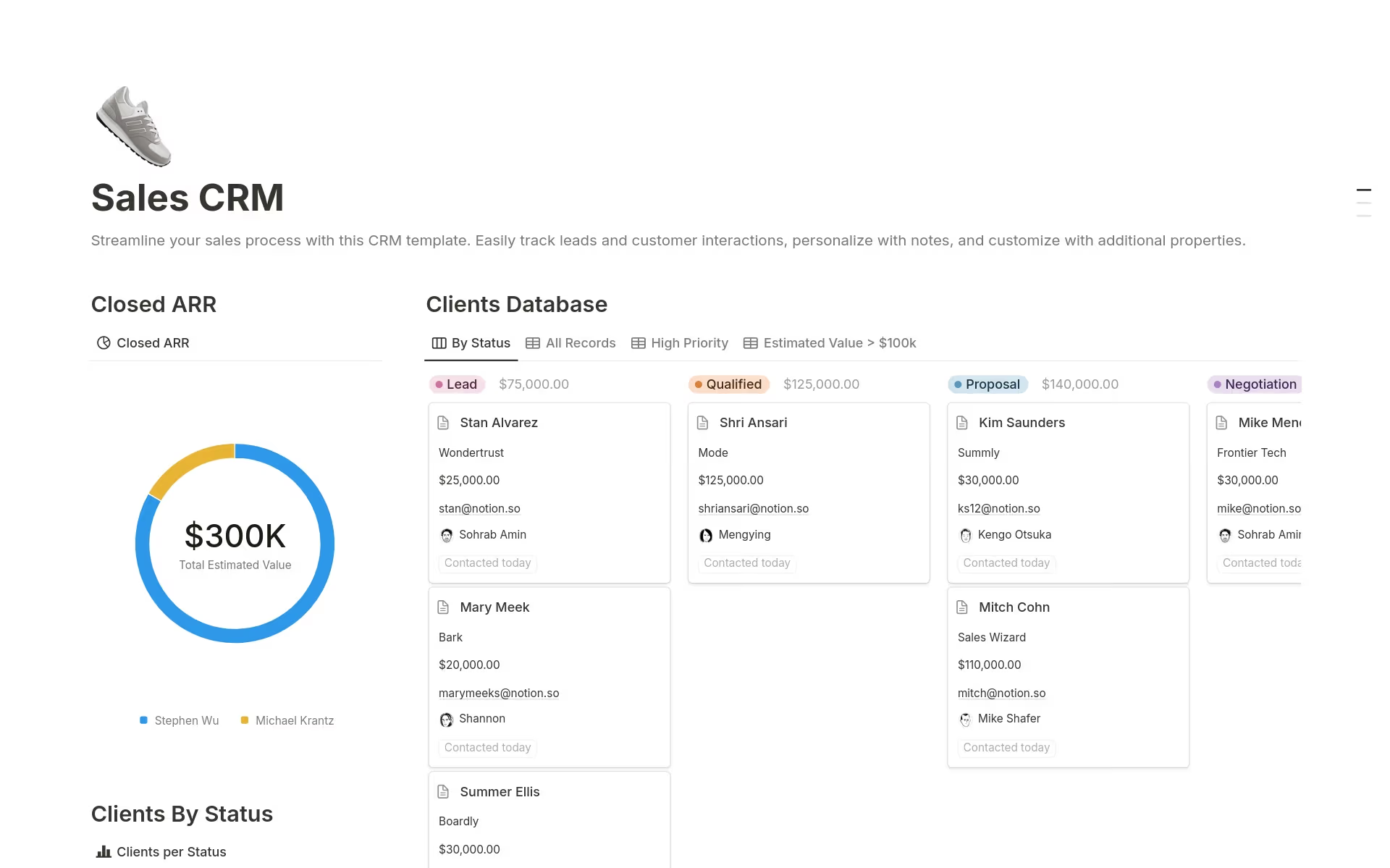Having a CRM (Customer Relationship Management) system is essential for maintaining and organizing your contacts, leads, and customer interactions. It streamlines your workflow, ensures you never miss a follow-up, and helps build stronger relationships. A CRM template in Notion can simplify the process by providing a structured framework to manage all your business connections effectively.
Before you dive into creating your own CRM, take a look at these CRM Notion templates to make the process smoother and more efficient.
What Should CRM Templates Include?
Choosing the right CRM template in Notion can streamline your customer relationship management processes effectively. Here are key components to look for when selecting a template:
Contact Management: This feature should allow you to store and manage customer information efficiently, making it easy to access and update details as needed.
Interaction Tracking: A good template will enable you to record every interaction with your customers, including emails, calls, and meetings, ensuring no detail is missed.
Task and Project Management: It should integrate task management features that help you keep track of deadlines, project statuses, and deliverables associated with your customers.
Reporting and Analytics: Look for templates that offer customizable reporting tools to analyze customer data and track sales performance, helping you make informed decisions.
Selecting a CRM template with these components will help you maintain a clear overview of your customer interactions and improve your overall business operations.
What Should CRM Templates Avoid?
When selecting a CRM template for Notion, it's important to be aware of certain features that might complicate or hinder your workflow rather than streamline it. Here are three key components to steer clear of:
Overly Complex Features: Avoid templates with intricate features that you don't need. Complexity can lead to confusion and reduce efficiency, especially if the template includes unnecessary automation or data fields.
Non-Customizable Elements: A rigid template that doesn't allow for adjustments can be a major drawback. Ensure the template can be tailored to fit your specific business processes and client management style.
Limited Integration Capabilities: Avoid CRM templates that do not support integration with other tools you use. Seamless integration is essential for maintaining an efficient flow of information across platforms.
Choosing the right CRM template involves looking for simplicity, flexibility, and integration potential to ensure it enhances your productivity and client management.













